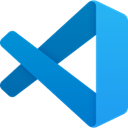Unlocking Your Code: The Best Orwell Dev-C++ Alternatives for Developers
Orwell Dev-C++ has long served as a reliable, portable Integrated Development Environment (IDE) and compiler for C++ programmers, particularly on Windows. Known for its updated MinGW compiler and refined codebase derived from the original Dev-C++, it offers a straightforward environment for C++ development. However, as projects evolve and development needs diversify, many developers seek more powerful, flexible, or specialized tools. This guide explores the top Orwell Dev-C++ alternatives, helping you find the perfect IDE to enhance your coding workflow.
Top Orwell Dev-C++ Alternatives
Whether you're looking for advanced debugging features, broader language support, or a highly customizable interface, there's an IDE out there to meet your demands. Dive into these leading alternatives to elevate your development experience beyond Orwell Dev-C++.

Visual Studio Code
Visual Studio Code is a powerful, free, and open-source code editor that seamlessly combines the lightweight feel of a modern editor with rich code assistance, navigation, and an integrated debugging experience. Available across Mac, Windows, Linux, and Chrome OS, it's an excellent Orwell Dev-C++ alternative due to its extensive extensibility via plugins, built-in terminal, intelligent autocompletion (Intellisense), and robust C++ support, making it suitable for a wide range of programming tasks.

Vim
Vim ("Vi IMproved") is a highly configurable and efficient text editor beloved by developers for its keyboard-focused workflow. As a free and open-source solution available on Mac, Windows, Linux, and BSD, it's a compelling Orwell Dev-C++ alternative for those who prioritize speed and customization. Its syntax highlighting, word completion, and vast plugin ecosystem allow it to be molded into a powerful C++ development environment, albeit with a steeper learning curve.

Eclipse
Eclipse is a robust, free, and open-source extensible development platform with powerful IDE capabilities for building and managing software. Available on Mac, Windows, and Linux, it serves as a comprehensive Orwell Dev-C++ alternative, especially for larger C++ projects. Its key features include strong debugger support, autocompletion, refactoring tools, and a highly extensible plugin architecture that allows it to adapt to various programming languages and development needs.

Microsoft Visual Studio
Microsoft Visual Studio is a full-featured integrated development environment (IDE) primarily for Windows, with a free Personal edition available. It's a significant upgrade as an Orwell Dev-C++ alternative, offering extensive C++ support, a powerful compiler, embedded debugger, and intelligent code completion (Intellisense). Its comprehensive set of features makes it ideal for developing complex applications, including those targeting the .NET Framework and Windows environments.

Geany
Geany is a small, lightweight, and fast Integrated Development Environment, making it an excellent Orwell Dev-C++ alternative for those who prefer minimalism without sacrificing functionality. Free and open-source, it runs on Mac, Windows, Linux, and BSD. Geany provides strong syntax highlighting, code navigation, a built-in terminal, and customization options, offering a lean yet capable environment for C++ development.

GNU Emacs
GNU Emacs is an exceptionally extensible and customizable text editor, often used as a full-fledged IDE. Free and open-source, available on Mac, Windows, and Linux, it stands as a powerful Orwell Dev-C++ alternative for developers who value deep customization and a keyboard-driven workflow. Its Emacs Lisp interpreter allows for endless extensibility through plugins, providing strong syntax highlighting and IDE features for C++ and many other languages.

Code::Blocks
Code::Blocks is a free and open-source C++ IDE designed to be highly extensible and fully configurable. Available on Windows, Linux, and BSD, it's a direct and strong Orwell Dev-C++ alternative, offering a comprehensive set of features out-of-the-box. It provides C++ support, an integrated development environment, and extensibility through plugins, making it a reliable choice for C++ development without significant overhead.

Qt Creator
Qt Creator is a cross-platform C++, JavaScript, and QML integrated development environment, part of the Qt SDK. Available on Mac, Windows, and Linux, it's a powerful Orwell Dev-C++ alternative, particularly for developers working with Qt frameworks. It boasts features like autocompletion, a robust build system, an integrated debugger, and excellent syntax highlighting, providing a comprehensive environment for C++ application development.

Komodo Edit
Komodo Edit is a fast, smart, free, and open-source code editor. Available on Mac, Windows, and Linux, it serves as a lightweight yet capable Orwell Dev-C++ alternative for developers seeking an efficient text editor with good code intelligence. While not a full IDE, its features and extensibility make it suitable for C++ editing and simple projects.

VSCodium
VSCodium offers binary releases of Visual Studio Code without Microsoft branding, telemetry, or licensing, making it a truly free and open-source Orwell Dev-C++ alternative for privacy-conscious developers. Available on Mac, Windows, and Linux, it maintains all the core functionalities of VS Code, including excellent C++ support, a built-in terminal, autocompletion, and extensibility via plugins, providing a powerful and privacy-friendly development environment.
Choosing the right IDE is a personal decision, heavily influenced by your project requirements, preferred workflow, and desired features. From lightweight text editors to full-fledged development environments, the alternatives to Orwell Dev-C++ offer a spectrum of capabilities. Explore these options to find the IDE that best accelerates your C++ development journey.